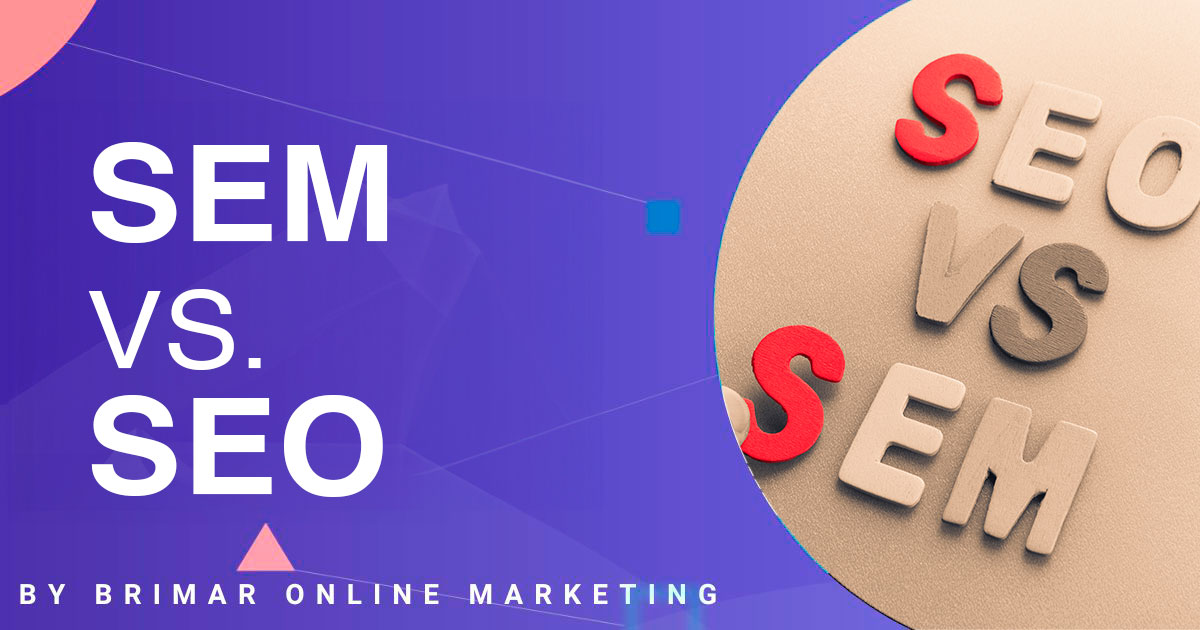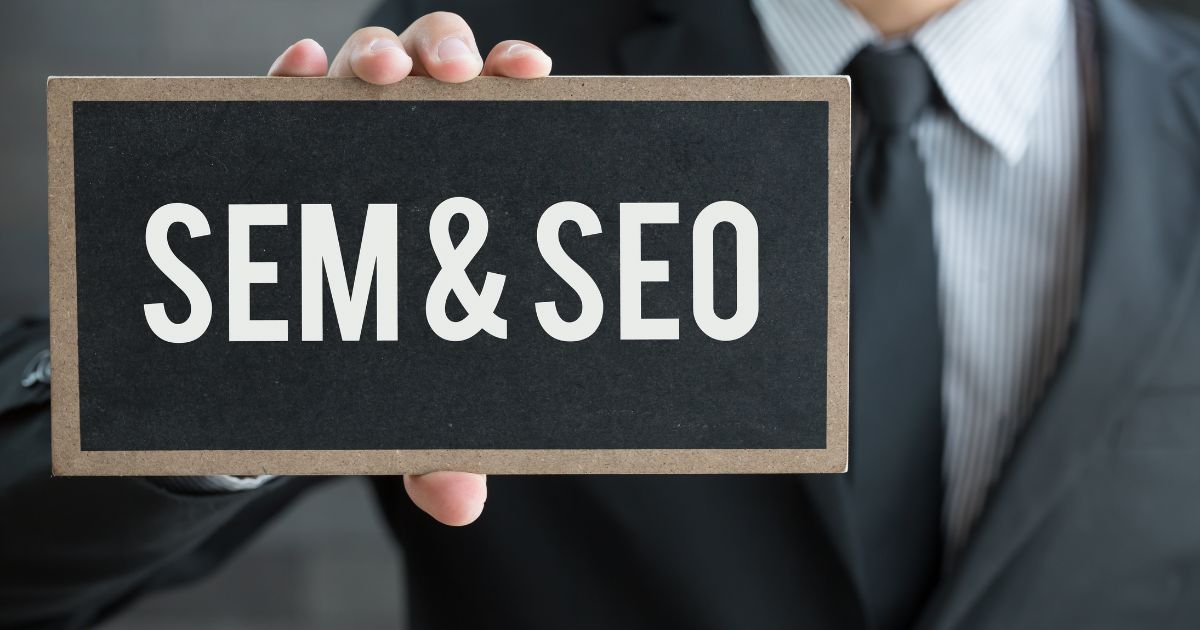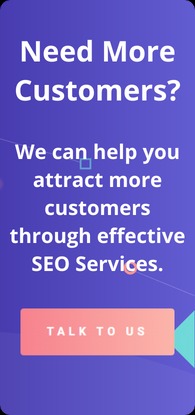
Creating a robust online presence has become crucial for businesses regardless of size.
Whether you’re a local bakery or a global e-commerce giant, being easily discoverable online is critical for success.
This is where strategies like Search Engine Marketing (SEM) and Search Engine Optimization (SEO) come into play.
Imagine you’re searching for a product or service.
Where’s the first place you turn?
Chances are, it’s a search engine like Google, Bing, or Yahoo.
These search engines act as virtual gateways, connecting consumers with businesses offering their needs.
But here’s the catch: if your business isn’t visible in search engine results, you might as well be invisible to potential customers.
Enter SEM and SEO, two powerful tools in the digital marketer’s toolbox.
SEM, or Search Engine Marketing, involves paid advertising to boost your visibility in search engine results pages (SERPs).
On the other hand, SEO, or Search Engine Optimization, focuses on optimizing your website and content to rank higher in organic search results.
In this article, we will dive into the world of SEM and SEO to shed light on their differences and help you make informed decisions for your business.
Whether you’re a seasoned marketer or just dipping your toes into the digital waters, understanding these two strategies is key to unlocking your online potential. So, buckle up as we embark on this journey to demystify SEM and SEO!
What is SEO?
Start Attracting Customers Through SEO Today!
We can help you attract new customers through Tailored Search Engine Optimization Strategies for Your Business.
SEO, or Search Engine Optimization, is like the silent engine propelling your website to the forefront of search engine results pages (SERPs).
Unlike SEM ads that rely on paid efforts, SEO focuses on keyword research, on-page SEO, and off-page SEO to drive traffic through organic results.
By ensuring your site delivers high-quality content and a seamless user experience, SEO helps establish your website as a credible authority.
With techniques such as technical SEO and optimized landing pages, you lay the groundwork for long-term success.
While SEO requires patience, it’s a cost-effective way to achieve the best results and maintain visibility without the need for constant ad spend.
Unlike its paid counterpart, SEM, SEO operates on the principle of organic growth, leveraging various techniques to boost your website’s visibility without directly paying for placement.
Think of SEO as the behind-the-scenes magician working tirelessly to ensure your website shines brightly in the eyes of search engines like Google.
It’s not just about sprinkling keywords here and there;
It’s about optimizing every nook and cranny of your website – from the content on your pages to the technical aspects that lie beneath the surface.
By fine-tuning your website’s content to match the intent of search queries, organizing your site’s structure for easy navigation, and optimizing technical elements like page speed and mobile-friendliness, SEO lays the foundation for climbing the ranks of search engine results pages.
The beauty of SEO lies in its long-term sustainability.
While SEM can provide instant gratification with paid visibility, SEO is the tortoise in the race, steadily gaining ground and establishing your website as a trusted authority in your niche.
It’s a marathon, not a sprint, but the rewards are worth the patience and effort.
Moreover, SEO is incredibly cost-effective in the long run.
Once you’ve laid the groundwork and earned your place in the upper echelons of search results, the traffic keeps flowing without the need for constant financial investment.
But perhaps the most valuable benefit of SEO is the credibility it bestows upon your brand.
When users see your website organically ranked at the top of their search results, they perceive it as a trustworthy source of information, products, or services.
In an age where authenticity reigns supreme, that credibility can make all the difference in converting curious browsers into loyal customers.
In essence, SEO isn’t just about climbing the ranks; it’s about building a solid foundation for sustainable growth, maximizing your online presence, and earning the trust of your audience – one search query at a time.
Key Differences Between SEM and SEO

Understanding the nuances between Search Engine Marketing (SEM) and Search Engine Optimization (SEO) is crucial for making informed decisions about your digital strategy.
SEM focuses on paid efforts such as PPC ads and search ads, using platforms like Google Ads and Google AdWords to target your target audience at the right time.
In contrast, SEO emphasizes long-term efforts, such as on-page SEO, technical SEO, and off-page SEO, to improve organic results through high-quality content and an optimized user experience.
The main difference lies in how quickly you achieve results: while SEM campaigns offer immediate visibility, a well-crafted SEO strategy builds sustainable growth over time.
Let’s delve into the key differences between SEM and SEO to help you navigate these two essential approaches effectively.
Cost
When it comes to cost, SEM and SEO operate on different principles.
As a paid advertising strategy, SEM requires a budget for ad spend.
Advertisers bid on specific keywords, and every click on their ads incurs a cost.
Conversely, SEO primarily relies on organic methods, which involve time, effort, and skill rather than direct monetary investment.
While SEO does have associated costs, such as hiring SEO professionals or investing in tools, these costs are typically lower and more spread out compared to SEM’s ongoing ad spend requirements.
Timing
One of the most noticeable distinctions between SEM and SEO is the timing of results.
SEM offers almost instant gratification. Once your ad campaigns are launched, your ads can appear in search engine results pages (SERPs) immediately, driving traffic to your website immediately.
In contrast, SEO is a long-term game.
It may take weeks or even months of consistent optimization efforts before you see significant improvement in your website’s rankings.
SEO requires patience and persistence, but the results can be worth the wait.
Control
SEM provides advertisers with a high level of control over their advertising campaigns.
With SEM, you can target specific demographics, geographic locations, and even the timing of your ads.
Additionally, you can adjust your ad copy, bidding strategy, and budget in real time to optimize performance.
In contrast, SEO is subject to the whims of search engine algorithms and organic ranking factors.
While you can certainly optimize your website for better rankings, you have less direct control over when and how your website appears in search results.
Longevity
Another vital distinction between SEM and SEO is the longevity of their respective results.
SEM results are often temporary.
Your visibility in SERPs diminishes once you stop running your ad campaigns or exhaust your advertising budget.
In contrast, the benefits of SEO can endure over time.
While it may take longer to achieve, SEO efforts can improve your website’s organic visibility and traffic.
By continually optimizing your website and staying up-to-date with best practices, you can enjoy continuous traffic and visibility without relying solely on paid advertising.
Understanding these critical differences between SEM and SEO is essential for crafting a balanced and effective online marketing strategy.
By weighing each approach’s costs, timing, control, and longevity, you can make informed decisions that align with your business goals and objectives.
Which Strategy Is Right for Your Business?

When deciding between SEM and SEO, aligning your choice with your business goals, budget, and timeline is essential.
Let’s break down the considerations for each strategy:
Considerations for Choosing SEM:
Short-term goals or promotional campaigns
If your business is launching a new product or running a limited-time promotion, SEM can quickly generate visibility and drive targeted traffic to your website.
With SEM, you have the flexibility to adjust your ad campaigns to align with your specific promotional goals.
Immediate need for increased visibility and traffic
SEM is the way to go if you need to boost your online presence rapidly.
By bidding on relevant keywords, you can ensure that your ads appear prominently in search engine results pages (SERPs), capturing the attention of potential customers when they’re actively searching for products or services like yours.
Availability of budget for advertising spend
SEM typically requires a budget for advertising spend, as you pay for each click on your ads.
If you have the financial resources to invest in paid advertising, SEM can deliver immediate results and a predictable return on investment (ROI).
Considerations for Choosing SEO
Long-term growth and sustainability goals
SEO should be a fundamental part of your digital marketing strategy if your business is focused on long-term success and sustainable growth.
While SEO may take time to yield significant results, its organic traffic can provide ongoing benefits and a solid foundation for your online presence.
Building organic credibility and trust with audiences
SEO helps improve your website’s visibility in organic search results, which can enhance your credibility and trustworthiness in the eyes of potential customers.
By optimizing your website for relevant keywords and providing valuable content, you can establish your brand as an authority in your industry.
Limited advertising budget or desire for cost-effective solutions
If you’re working with a limited advertising budget or prefer cost-effective marketing solutions, SEO is a cost-efficient strategy that can deliver substantial returns over time.
While it requires initial investment in optimization efforts, the long-term benefits of organic traffic can outweigh the ongoing costs of paid advertising.
By carefully considering these factors and evaluating your business objectives, you can determine whether SEM, SEO, or a combination of both is the right strategy to achieve your marketing goals effectively.
Conclusion
In wrapping up our exploration of SEM vs. SEO, let’s recap the main takeaways:
Key Differences Between SEM and SEO
- SEM (Search Engine Marketing): It’s all about paid advertising, offering instant visibility through targeted ads. With SEM, you bid on keywords to have your ads displayed to relevant audiences, paying only when someone clicks on your ad.
- SEO (Search Engine Optimization): This is the organic route, focusing on optimizing your website to rank higher in search engine results. SEO involves fine-tuning your website’s content, structure, and technical aspects to improve its visibility over time without paying for clicks.
Evaluate Your Business Needs
Before making a decision between SEM and SEO, it’s crucial to consider your business goals, budget, and timeline.
Are you looking for quick results or long-term sustainability?
Do you have the budget to invest in paid advertising, or are you more inclined towards cost-effective organic methods?
Understanding these factors will help you determine which strategy aligns best with your objectives.
Balance is Key
While SEM and SEO have their distinct advantages, the most effective online marketing strategy often involves a combination of both.
By striking a balance between paid advertising and organic optimization, you can maximize your online visibility and reach a wider audience across various stages of the customer journey.
Remember, it’s not about choosing one over the other but leveraging the strengths of each to achieve optimal results.
Let Us Help You
At Brimar Online Marketing, we specialize in crafting tailored strategies to help businesses like yours succeed in the digital realm.
Whether you need assistance with PPC campaigns, organic SEO tactics, or a comprehensive online marketing plan, our team is here to provide personalized guidance and support every step of the way.
Reach out to us today, and let’s collaborate on elevating your online presence together.
Our SEO Services Have Helped Our Clients Increase Their Revenue!
“I highly recommend Brimar if your looking to grow your online business. You will be satisfied with the high level of expertise and high quality of services. It has helped my business grow by leaps and bounds.”
CEO

